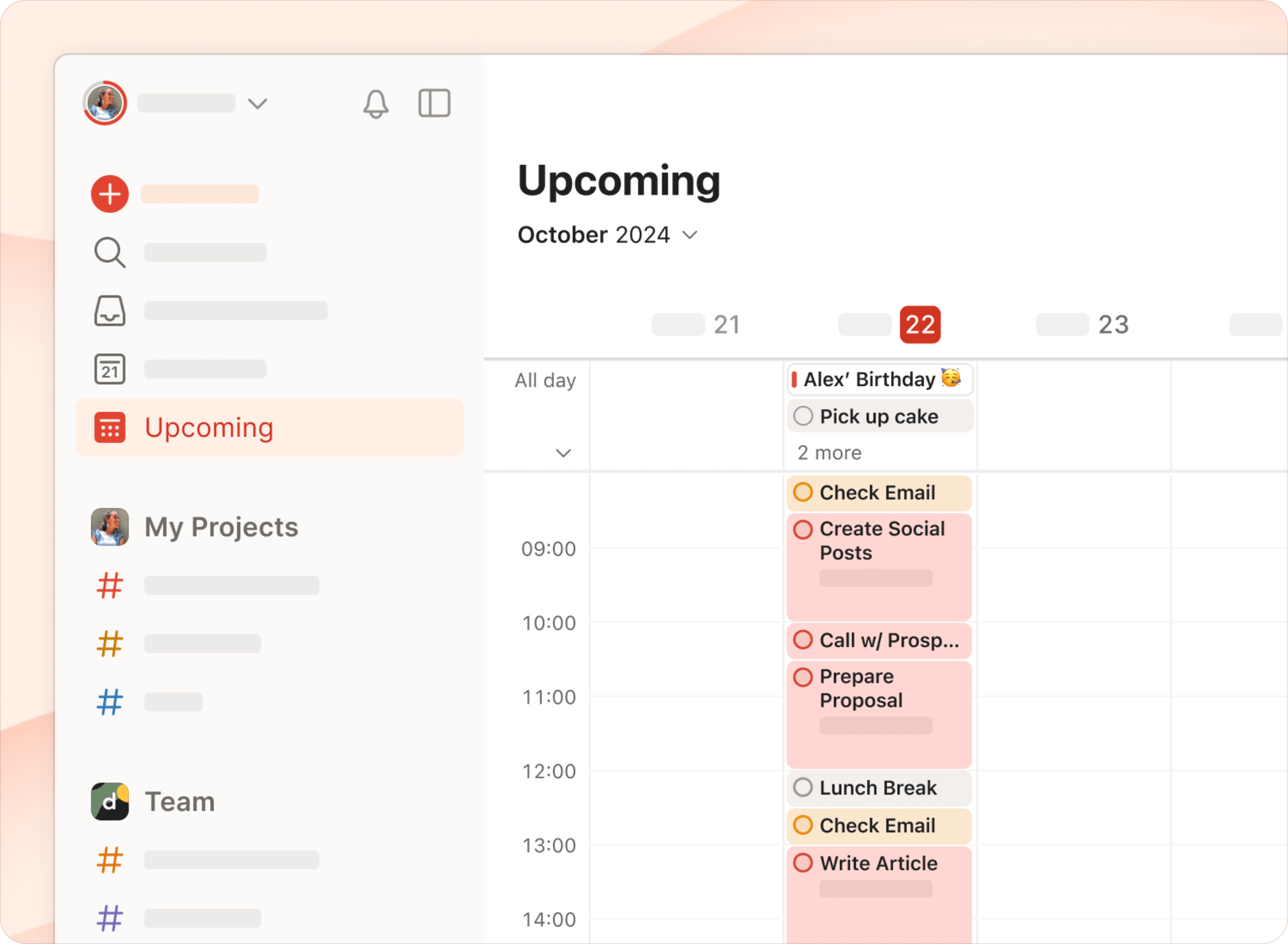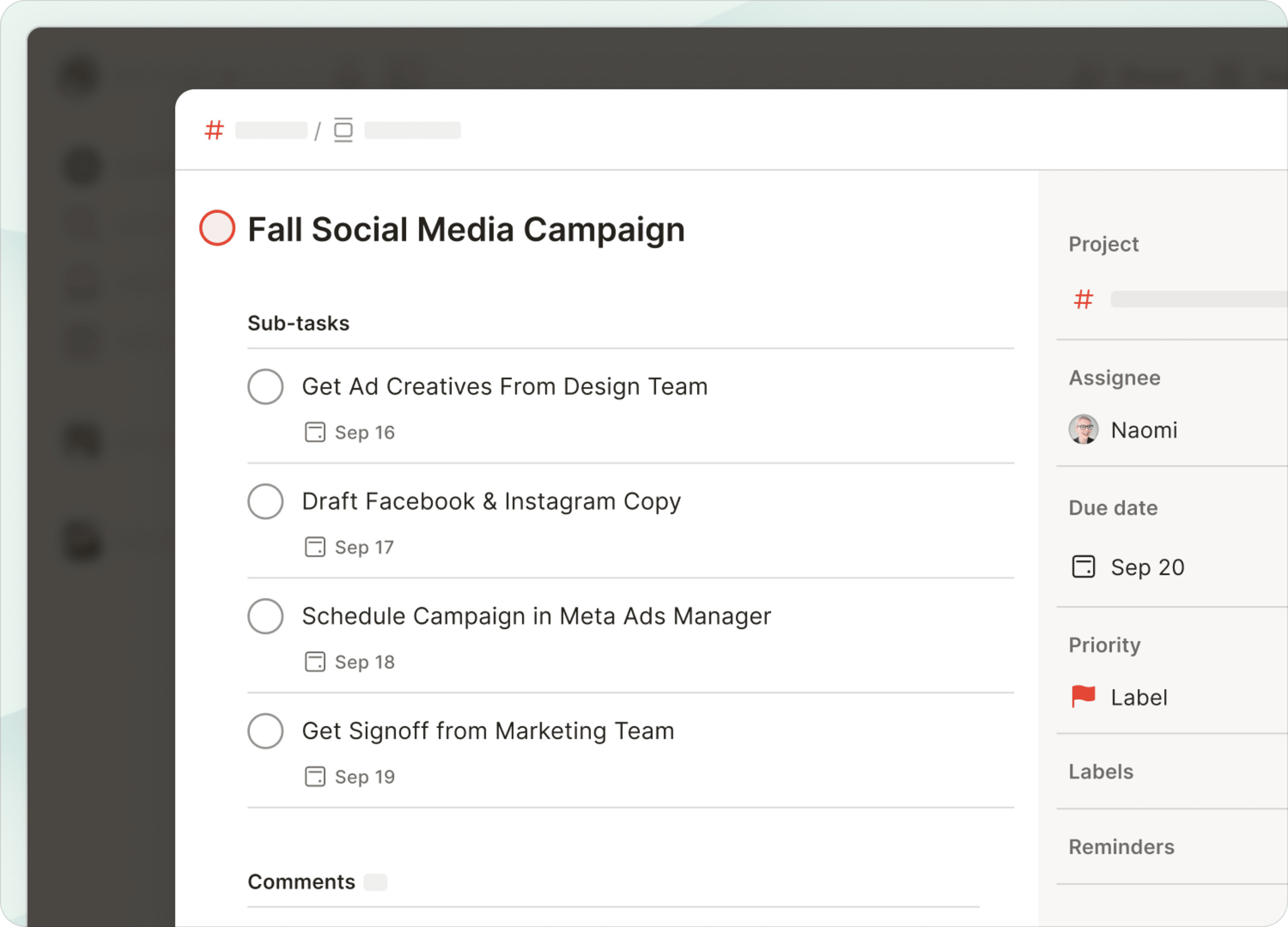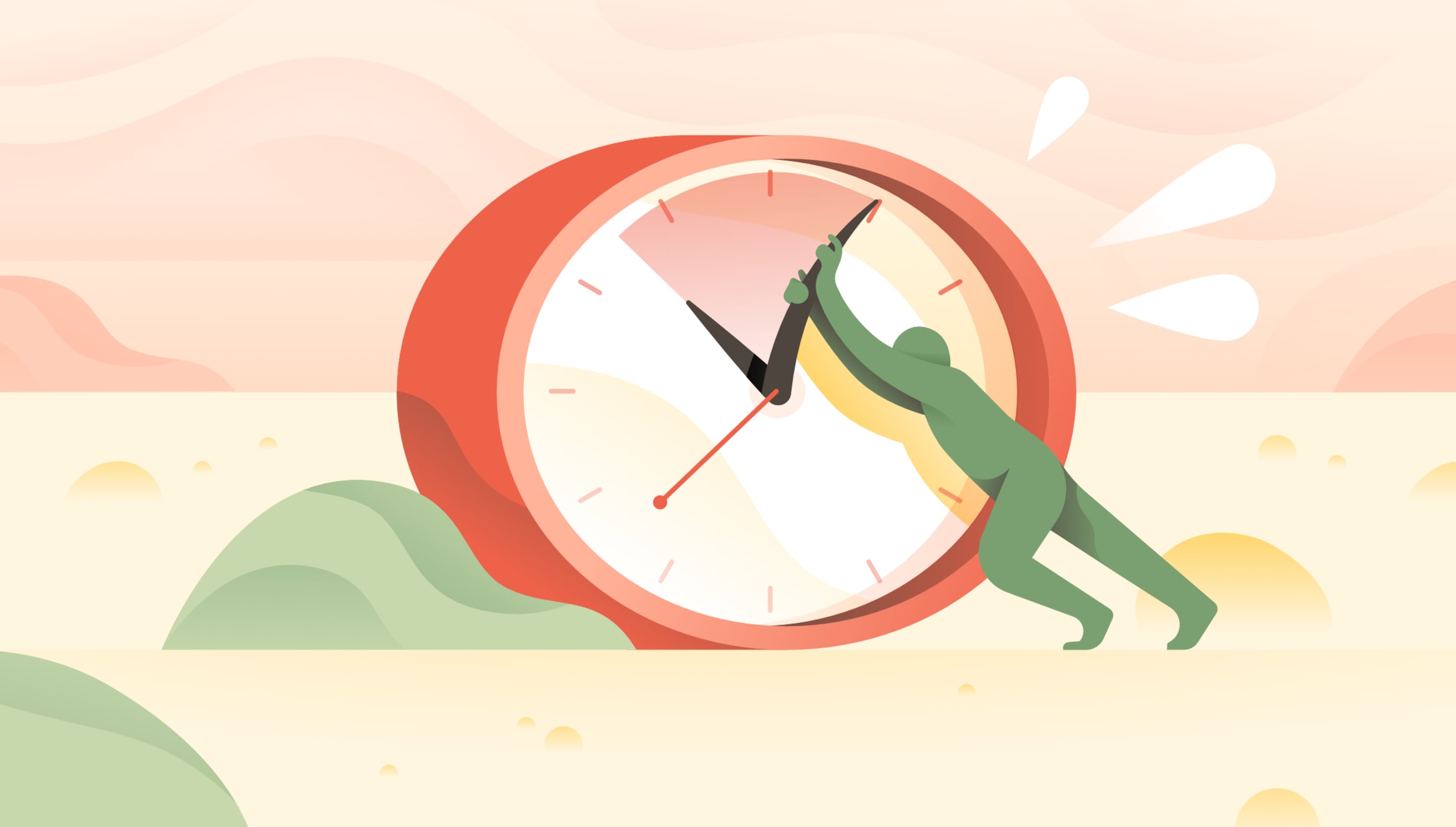Have you ever told a colleague, "I work better under pressure," to justify waiting until the last moment to start a mission-critical task for your team?
How about "I have plenty of time to finish this" when you'd need a time machine to make that true? Or even "I'll feel more motivated to tackle this project after a break" as a reason to put it off a little longer?
If you've ever found yourself thinking any of these statements or saying them aloud, there's a good chance you're procrastinating. Sure, delaying a task here or there may not be the end of the world.
But making it a habit can create more of a negative effect than you might think. From mental health concerns to slow career growth, procrastination can lead to serious issues for you and those who depend on you.
So, how can you stop postponing tasks? Let's look at why procrastination happens, the consequences you can expect, and how to overcome this self-defeating behavior, so you have the capacity to focus on the work that really matters.
What Is Procrastination?
Procrastination is the act of delaying tasks without reason, even when you know postponing them will create problems for your future self. You might even proactively seek out distractions as a way to put off your tasks.
Although it might sound a little like laziness, there's a big difference between the two. Laziness typically refers to a lack of effort. For example, refusing to participate in a work project because you don't want to do it. Or declining a meeting invitation because you don’t feel like putting in the time.
In contrast, procrastination involves having every intention to complete a task. Yet you postpone it to focus on something less difficult and more enjoyable. For example: delaying a work project to binge-watch a TV series. Or putting off replying to time-sensitive emails that require a lot of thought, while catching up on non-urgent messages instead.
It's worth noting that almost everyone puts off boring or unpleasant tasks once in a while. However, about 20% of American adults are chronic procrastinators, meaning this behavior has become a concerning way of life.
Why We Procrastinate
On the surface, it might seem easy to understand why people procrastinate. After all, spending the afternoon scrolling through social media or catching up on your reading list probably sounds more fun than putting together a slide deck for work.
But for chronic procrastinators, putting off tasks isn't really about fun. The root cause is much more complex. Let's take a look at the science behind procrastination.
Historically, studies have shown that this behavior comes from a failure to self-regulate or a struggle with self-control. Procrastination is used as a way to approach short-term mood regulation. People who procrastinate often delay tasks to avoid negative feelings like frustration, anxiety, or self-doubt.
A 2022 bibliometric analysis by Bo Yan and Xiaomin Zhang also found that certain factors related to the task can increase the likelihood of delays. For example, unclear instructions from your boss might cause you to postpone a task.
Environmental factors can also make procrastination more likely. For instance, allowing temptations and distractions in your workspace might encourage you to put off work tasks.
And finally, a 2017 study by Martin M. Smith, Simon B. Sherry, Donald H. Saklofske, and Aislin R. Mushqaush indicates that perfectionism can contribute to procrastination. When you're concerned about doing a bad job on a project, you may talk yourself out of starting it in the first place.
What Happens When We Procrastinate
Avoiding negative feelings sure sounds ideal in the short term. But the cost of procrastination can be high in the long run. Let's take a closer look at some of the most common consequences.
Increased stress levels: Putting things off can alleviate stress for your present self. But this behavior creates additional stress in the long term. Studies show that procrastination is linked with higher stress levels, which can also compromise sleep quality and cause physical illnesses.
Mental health issues: In addition to physical illnesses, procrastination may also cause mental health issues. A recent study found that for university students, procrastination is linked with anxiety, depression, and feelings of loneliness.
Lower work quality: When you delay important tasks, you naturally give yourself less time to complete them. When you need to meet deadlines, you may have to rush to finish projects. In the end, you've done the job. But the final product may not demonstrate your skills.
Stunted career and personal development: When avoiding difficult or frustrating tasks becomes a habit, you inadvertently place limits on your potential. If you regularly deliver low-quality work, you may not improve your skills or advance your career at the same rate as your peers.
If it sounds like procrastination is relatively self-defeating, you're right. It may create temporary wins and quick dopamine releases. But it won't do your future self any favors.
How to Stop Procrastinating: 6 Tips to Overcome This Self-Defeating Behavior
If the outcomes above sound familiar (or if you're concerned that they could transpire) rest assured that you can take steps to put procrastination behind you. Use these ideas to reframe your thinking and find the time management skills and techniques that work best for you.
1. Eliminate Distractions
People who procrastinate often look for quick, easy distractions to avoid tasks. As a result, one of the simplest steps you can take is removing distractions.
First, you need to know where you're most likely to turn when you need a diversion. For example, you might turn on the TV, do some house cleaning, or start doom-scrolling.
Then, determine how you can stop yourself from reverting to these tasks. You don't necessarily have to get rid of your TV, for example. Instead, make it harder to access.
You might choose to work in a room without a TV to eliminate the proximity. Or you might ask for help with cleaning so you don't feel tempted to do it during work.
For example, social media is one of my biggest distractions. To make it less accessible, I sign into my social media accounts in a browser profile that's separate from the one I use while I work.
2. Use Time Blocking to Set a Realistic Schedule

Don't want to give up your favorite distractions entirely? Instead of eliminating them, set aside specific times for them throughout the day.
Time blocking creates structure by dividing your day into preplanned periods of time. Each block can last for anywhere from a few minutes to several hours.
The catch is that the blocks are back to back, filling your entire work day. So, instead of impulsively checking your email every 30 minutes, you do it at designated times only.
Here's how my typical time-blocked day looks in the Todoist app. It has blocks for time-sensitive projects, scheduled meetings, routine things like checking email, and even breaks.
When you time block your day, you can also batch tasks. This approach is helpful for completing a lot of related tasks (e.g., responding to emails) at a set time instead of sporadically throughout the day.
Task batching is also great for avoiding context switching, or jumping between unrelated tasks. Since it creates a series of interruptions and shifts your attention away from the task at hand, context switching can seriously compromise productivity and focus. Because it often causes you to step away from what’s important in favor of quick wins, context switching can also contribute to procrastination.
3. Break Large Projects Into Smaller Tasks
Do you find that you're more likely to procrastinate when your to-do list is full of large, unwieldy projects? Breaking down large projects into smaller tasks can help.
This approach makes workloads less intimidating. It also creates starting points that are more achievable.
For example, suppose you need to build and launch a social media campaign. If you add it to your list as a standalone task, you'll probably struggle to know what it entails or how long it will take.
With Todoist, you can break down any task into a series of sub-tasks. Then, you can add descriptions, links, and due dates to all of them so you can keep yourself on track.
Here's how I use Todoist to schedule big projects like launching ad campaigns. As I complete each sub-task, I check it off the list. And if I want to incorporate time blocking, I can add a time to the due date.

As helpful as sub-tasks are, they can become overwhelming in large numbers. You may avoid starting a project if it has too long of a sub-task list. Find the right balance that inspires you to jump right in.
4. Complete the Hardest Task First
When your day is filled with smaller tasks, your to-do list might seem like it's a mile long. If you can't decide where to start, you might be tempted to give up and put everything off.
Instead, try eating the frog. Not literally, of course. Eat the Frog is a time management method that centers on identifying the most important task you need to get done—and then doing it first.
This method is helpful for a few reasons. It forces you to prioritize what's truly important so you can spend your time on what really matters.
It also helps you create time for deep work. If you make a habit of eating the frog, there's a good chance you'll get better at both self-regulation and blocking out distractions.
Just make sure your frog isn't a major task that ends up taking the entire day. Choose frogs that take a half day at most. If your frogs are too big, break them into sub-tasks so you can take action on them separately.
I usually end the work day with at least two potential frogs for the next morning. But I like to choose my frog when I start work for the day. That way I get to have a choice, even if the options are limited.
5. Make Yourself Accountable
In some situations, your tendency to put off tasks may only affect you. When it doesn't create negative consequences for anyone else, you may not have an incentive to beat procrastination.
But when you make yourself accountable, the math changes. You set daily goals and track your progress, which creates momentum and increases your motivation.
You can certainly be accountable to yourself and track your progress independently. But it's often easier when you have an accountability partner you can check in with on a daily or weekly basis.
Another option is being accountable to a team. With Todoist, you can easily collaborate with your team and create shared projects.
Together, you can plan projects, delegate tasks to team members, and set due dates. When everyone's depending on you, staying on task and meeting deadlines tend to be easier.
6. Take Breaks and Reward Yourself
The end goal of overcoming procrastination isn't being productive around the clock. If you feel like you have to work on a top-priority task at all times, you'll set unrealistic goals and end up experiencing productivity shame.
Instead, it's about achieving balance and making work more sustainable for you. As a procrastinator, one of the most important things you can do is take planned breaks and reward yourself.
The Pomodoro Technique can be particularly helpful for working breaks into your daily schedule. With this technique, you choose a task, work on it for 25 minutes, and take a 5-minute break.
Once you've repeated the cycle a few times, you can take a longer break to reset. It's ideal for reducing distractions, improving accountability, and boosting motivation, making it ideal for beating procrastination.
Final Thoughts on Procrastination
Overcoming procrastination isn't something you can resolve overnight. Instead, changing your behavior requires conscious and consistent effort.
When you have a willingness to improve, a framework to guide your approach, and the right tools to help you get things done, you can take strategic steps to stop procrastinating.
Plus, when you give yourself the tools to approach difficult tasks confidently and complete them more efficiently, you'll unlock the biggest win. You'll have more time and capacity to do the things that really matter to you.

